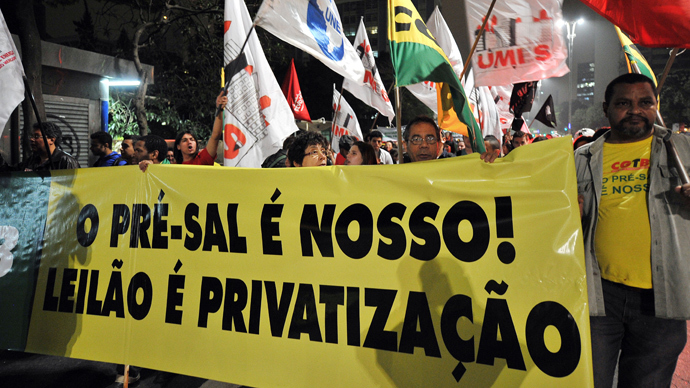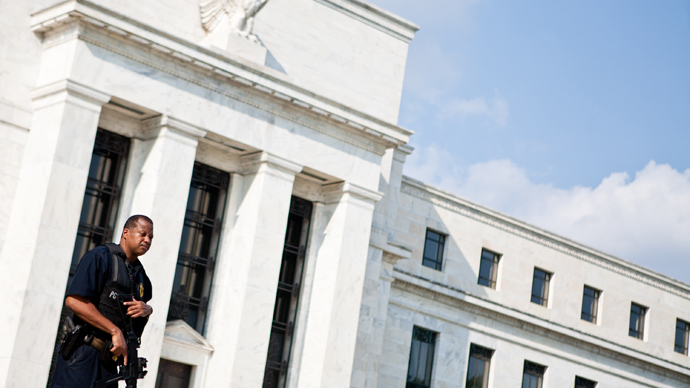Fed’s taper tosses emerging markets

Like the end of a massive dragon, the aftermath of the Fed taper is traumatizing emerging markets.
The term “emerging markets” lumps together a vast, disparate diaspora. It ranges from those for whom one dollar a day income represents considerable ambition, all the way to nations like Poland where living standards are converging rapidly with those in nearby Berlin. Emerging markets converge with core standards of universal literacy, commercial trust and infrastructure. In a digital world, that gap narrows constantly. While industry may not be quite free to trade, services are increasingly globalized whatever the aspirations of protectionists.
The ‘funny money’ folly of rich world central bankers has exacerbated a wave of problems now afflicting emerging markets. Quantitative easing delivered free money to banks, who then proceeded to inflate a whole new round of bubbles. (The aim was to rebuild crumbling balance sheets).
Soon this indiscriminate asset buying splurge headed east on a quest for better returns. The Federal Reserve’s fire hose kept spraying cash indiscriminately until last year when mention of a taper first arose. Despite QE still planned at $65 billion a month (down from $85 billion at its peak), the massive long tail of the Federal Reserve has whipped up a storm through multiple emerging markets. Investors, demonstrating the fear which typifies the breed at inflection points, have panicked and indiscriminately abandoned these jurisdictions.
The resulting investment outflow has left emerging markets nursing varying concerns. Some are merely a tad bruised by recent experience (e.g. much of Central Europe), but the rapid outgoing surge of tidal investment has revealed some economies swimming naked. Brazil is one such example. A vast array of raw materials and too few value additive productive exporters has created economic disequilibrium. Commodity prices have declined as China slowed, leaving the likes of Brazil exposed: still spending and importing as per boom years, resulting in large trade and budgetary imbalances. Brazil is a typical case of emerging market hubris, albeit with a touch of samba. It rode a massive boom but is ill-prepared to defuse a significant downturn.

Many governments ride the roller coaster without applying necessary fiscal and structural discipline. Dedication to free trade creates massive emerging markets success stories like Singapore: From swampy breakaway strait to state of the art city state in under 50 years. Indulgent protectionism results in the developing train wreck, which is Cristina Kirchner’s delusional Argentina. Embracing fully fledged socialism has delivered Venezuela...to the brink of meltdown.
After an initial wobble last year, emerging markets hoped to hang on by their fingertips. Alas the beginning of 2014 quickly gave way to considerable volatility as taper terror delivered an emerging markets rout. Now China is tightening its belt, investors have indiscriminately abandoned emerging markets. Massive debts endanger the likes of China and Turkey. Foreign currency loans are a poisoned chalice. Many emerging markets risk toxic shock.
While economic cycles run their course, downturns are marked by the self-righteous indignation of inadequate politicians. They reveled in plaudits during good times but urgently seek to blamestorm away their failings at any hint of trouble. Turkey’s finance minister vilifying any investor within a vast radius of the Bosphorus is counterproductive. (Only a rare form of myopia fails to notice the taint of corruption casting a shadow over Ankara and Istanbul).
Investors invariably punish economic sins or political instability - hence Thailand and Ukraine face chaotic economic consequences. Equally, nations which have proven prickly (or confiscatory) towards foreign investors face short-term ruin. Argentina and Venezuela are textbook examples, while the quixotic Hungarian government is one New European regime which may be endangered. Then again, having copied the Hungarian private pension fund confiscation, desperate investors may even attack Poland despite being (otherwise) relatively well managed!
A rapidly outgoing investment wave may metamorphose into a recessionary tsunami. The weakest will burn on a bonfire of political vanities. Desperate emerging market governments are dissipating valuable currency reserves, hoping to avoid inevitable devaluation. Brazil’s currency alone may fall 65-70 percent. The so-called “fragile five’ (Brazil, India, Indonesia, South Africa, Turkey) alone represent 20 percent of global growth since 2009. That has global implications: their weakness will prove contagious in the west.
$12 billion has already fled emerging markets this year, on top of a $15 billion decline last year, leaving many nations, including South Africa and India raising interest rates in increasingly desperate attempts to staunch the hemorrhage.
Markets can be cruel but governments which grow foolhardily are crueler still.
The statements, views and opinions expressed in this column are solely those of the author and do not necessarily represent those of RT.
The statements, views and opinions expressed in this column are solely those of the author and do not necessarily represent those of RT.













